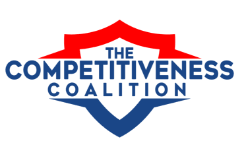Live from Francoeur’s Cafe in Manchester, NHJournal presents Diner Table Economics!
Want to hear the specific economic proposals from the people who want to be the next president of the United States? You’ll get it here, straight from the candidates themselves, over a cup of coffee at a downtown Manchester diner.
No “horserace politics,” no “politics of personality,” just a 25-minute conversation about jobs, inflation, taxes, and spending. The policy positions from regulation to tax reform that impact the daily lives of Granite Staters and all Americans.
In this edition, Gov. Ron DeSantis lays out his economic agenda. A few highlights (edited for clarity and brevity):
Some of the GOP candidates for POTUS are talking about achieving 5 percent growth. Is that realistic?
“Well, we haven’t had even three percent growth since the great financial crisis [of 2007]. We said we’re going to have a target of a three percent growth rate. I think it’s doable. I would love to do five percent and look — if we can be as bold as possible with Congress, maybe it can get there. But if everything’s hinging on that, that would defy what’s happened over the last 15 years.
“The first three years of the Trump administration, the economy was better in terms of prices were stable, we had better energy and regulatory policy, etc. But growth was not strong. We need three plus percent. If you do that, that does help with the budget problems.”
Would you describe yourself as a traditional free-market Republican, or do you embrace the new “National Conservative” view that government needs to intervene in the economy for the greater good?
“I don’t know that the dichotomy is as sharp as you paint. We’re a country with an economy, not the other way around. So the reason why I support market-based solutions is because I think that’s the better way to benefit the people: increase the standard of living, give more opportunities.
“Now, you also have to look and say, ‘Okay, how do we relate to a country like China?’ Our arrangements over the last 20, 25 years, have they benefited the country, or have they made us more dependent on a hostile country? So, I think there are national security implications. Having an industrial base, for example, is important for national power and national health. But clearly, I’m somebody who knows there’s limits to what you can do for things like industrial policy.
“But I view the economy as part of the country. I don’t think you sacrifice the country’s well-being right on the altar of economic efficiency.”
Do you support the current FTC’s anti-trust regulations based on company size vs. consumer outcome?
“I think the consumer outcome [standard] is an important one that is traditional. But I think what we’ve seen now, with particularly the tech companies, is power that they’re exercising over people. So, for example, Standard Oil at the turn of the 20th century, it could raise the price that impacted people. I would argue that Facebook and Google — how they manipulate things — that has more power over people’s daily lives. How they squelch dissent.
“So the issue is power. It’s what power are they exercising over individuals and over society? And I think that these tech companies are more powerful over our society today than Standard Oil was.”
Favorite economist: Milton, Hayek, or von Mises?
“Friedman would say, ‘Look, when you go engage in money printing and all this stuff, you will get inflation.’ But it doesn’t just happen. It’s like an 18 to 20-month thing. So they started the money printing in March of 2020 all the way through Biden’s first six months. And Jerome Powell said, ‘You have to unlearn Milton Friedman. [Inflation] is transitory.’ And, of course, Powell was wrong, and you had a big spike. They’ve had to raise interest rates. So Friedman knew what he was talking about.”
Diner Table Economics is sponsored by The Competitiveness Coalition.



